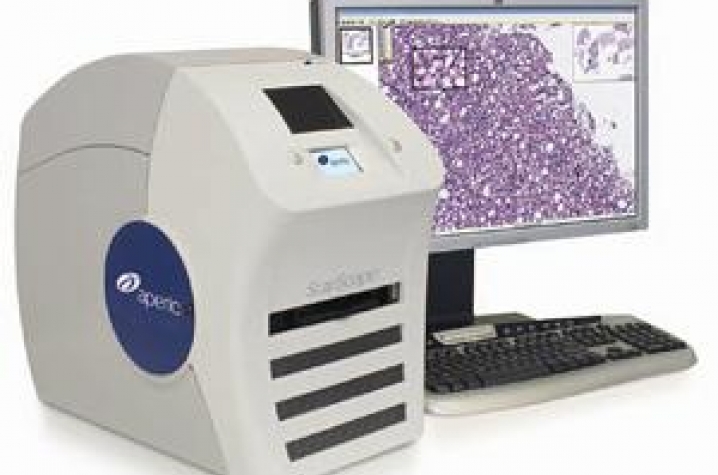ScanScope Peers Into Brains

LEXINGTON, KY. (May 27, 2011) — A new, exciting piece of equipment will soon be up and running in the University of Kentucky Sanders-Brown Center on Aging. The Aperio ScanScope instrument, purchased with a $283,000 grant from the National Institutes of Health, will enable Sanders-Brown researchers to study brain tissues in a new way, and to create a "digital brain bank" of data on donated brain tissue.
"The ScanScope represents cutting-edge digital microscopy technology that enables automated and high resolution quantitative neuropathology. This slide scanning system will enhance our Center’s ability to detect early changes in the brain, and will greatly benefit the research programs of a large number of investigators," said Linda Van Eldik, SBCoA director.
The Sanders-Brown Center on Aging has been collecting brain tissue from research volunteers for more than 25 years, and has one of the world’s most complete tissue banks - from both healthy donors as well as those with Alzheimer's disease and other cognitive impairments.
The ScanScope will allow for digital microscopy-based reading of brain tissue changes that occur in the aged brain. Digital microscopy enables completely different new possibilities when compared with microscope readings taken with the human eye alone. Thus, the ScanScope will allow researchers to pick up extremely minute characteristics of brain tissue. The machine will give faster and more accurate readings of brain tissue, giving researchers precise knowledge of changes seen in the brain during both healthy aging and cognitive impairment.
"It will help us decide what changes are most sensitive and specific for different disease subtypes," said Peter Nelson, a neuropathologist at Sanders-Brown who wrote the NIH grant proposal. "This is great because one of the big findings from our center is that not all people with cognitive impairment have Alzheimer's disease. We can ask new questions, like, ‘What is the effect of diabetes on the brain?’, and ‘Is heart disease linked to problems in the brain?’ The ScanScope has the potential to allow us to move the field forward by finding whole new brain diseases that couldn't be visualized by the naked human eye alone."




